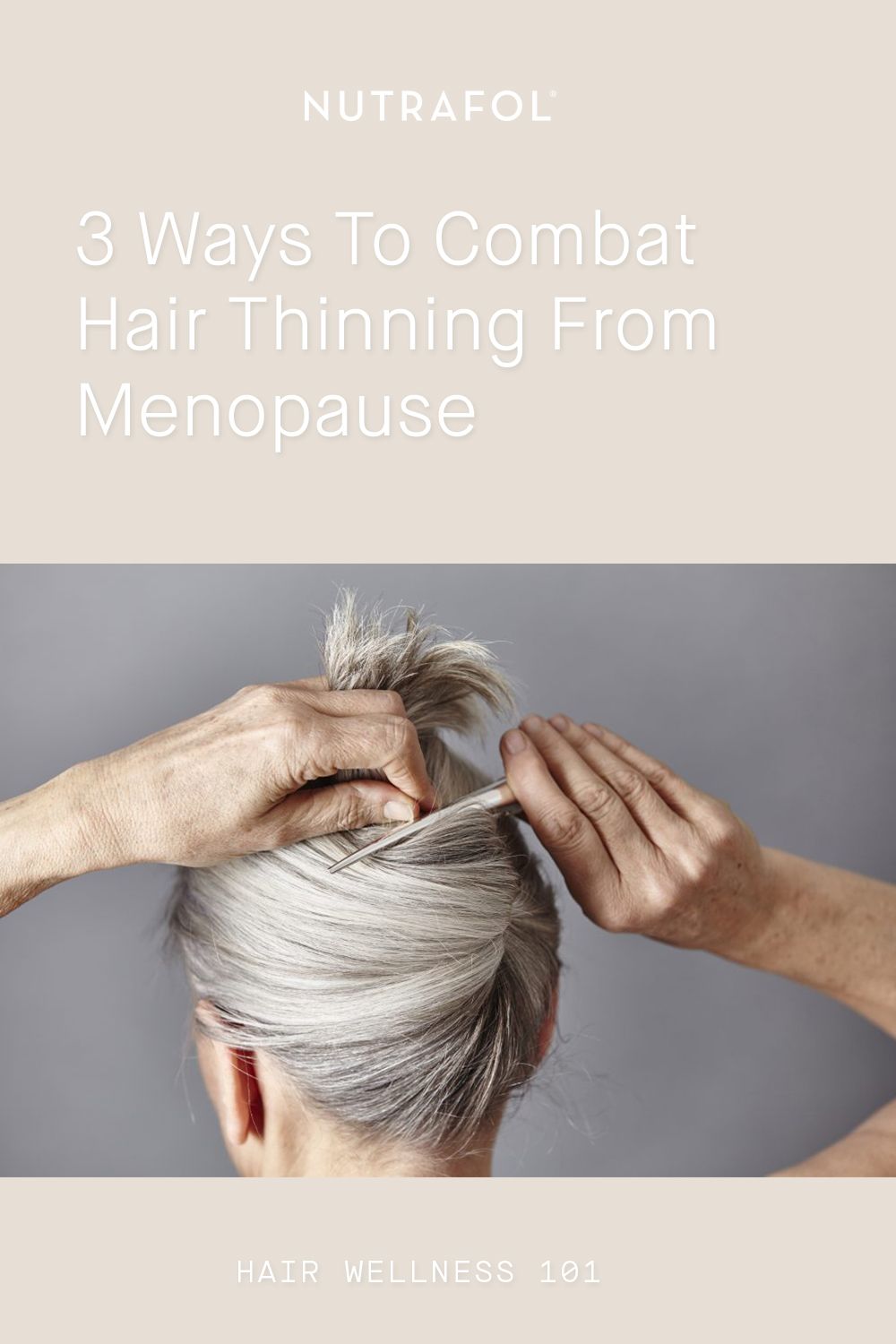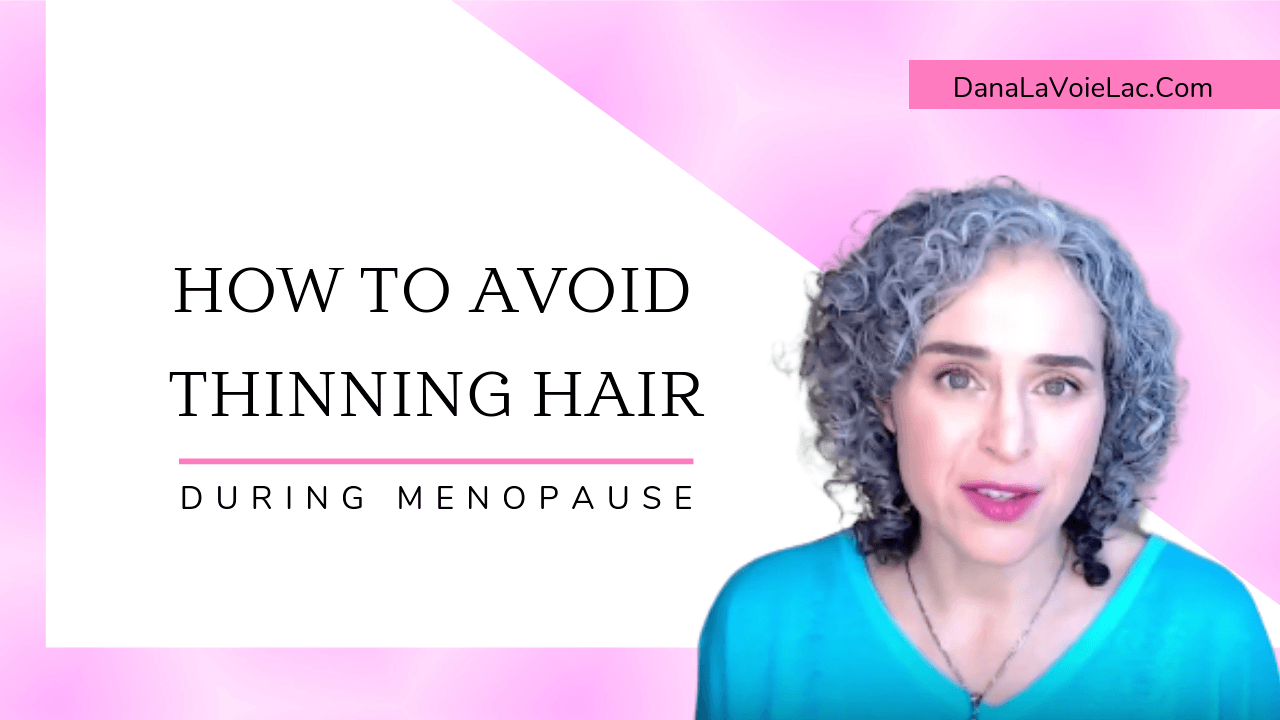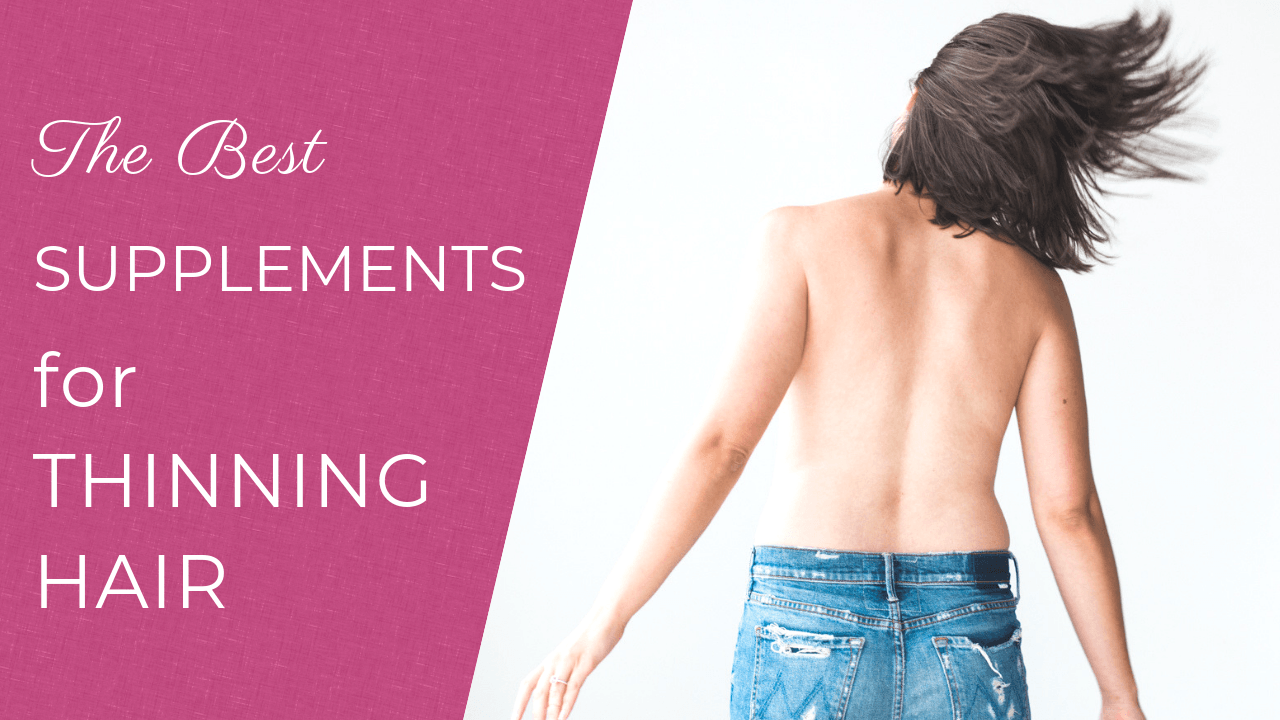Hair Loss During Menopausal Transition
Hair loss during the menopausal transition can be just as dramatic as menopausal hair loss. The two are both related to the same changes in hormone levels. The menopausal transition is the time leading up to menopause and can last several years. During the menopausal transition, fluctuating hormones can cause some of the same symptoms typically associated with menopause.
Beware Of Big Promises
There are numerous devices and products that are marketed as effective hair loss treatments, but many of them do not work. Beware of all of the false advertising associated with these products. If a cure for hair loss in women sounds too good to be true, it probably is. Before-and-after pictures may have been doctored to be misleading. How do you know if a hair loss treatment really works? Ask your dermatologist about any treatment you are considering. Look on the FDA and Federal Trade Commission websites to search for approved medical devices and drugs.
Hair Cycle Of Growth And Rest
Like your skin and nails, your hair goes through a finely tuned cycle of growth and rest. Hair loss can occur at any time in the cycle. There are 3 phases in a hair cycle:
- In the first stage, your scalp hair is continually growing. This is called the anagen phase. In this phase, your hair grows about 12cm per month. About 90% of your hair is in this stage at any one time. It lasts between 25 years.
- The second stage is call the catagen phase, which is when growth stops. About 13% of your scalp hair is in this phase at any one time. It lasts for 23 weeks.
- The third stage is called the telogen phase. This is a resting phase and it lasts between 14 months. About 10% of your scalp hair is in this phase at any one time.
At the end of its resting stage, a hair goes through a shedding phase, which normally results in the growth of a new hair. When a hair is shed, it’s replaced by a new hair from the same hair follicle, located just beneath your skin surface.
Male or female hereditary hair loss is caused by genetic or hormonal influences. It is also called androgenic alopecia because it is affected by the hormones called androgens. These are present in both men and women, but in different quantities.
Your risk of hereditary hair loss increases if you have relatives who have experienced hair loss. Your genetic blueprint for hair loss will affect things like:
- how old you are when hair loss begins
- how fast you lose hair
- the pattern and extent of your hair loss/ baldness.
Read Also: Can Bleaching Hair Cause Hair Loss
Wigs Hair Pieces Or Hair Transplantation
Cosmetics such as hair sprays or hair colouring products, wigs and hair pieces can be effective to hide area with hair thinning. Hair transplantation has become more popular but not everyone is suitable for this procedure and it is expensive. Talk to your doctor to find out whether these treatments are suitable for you.
The Ministry of Health also provides a wig and hairpieces subsidy. Read more about the wigs and hair pieces subsidy to find out if you are eligible.
How To Stop Hair Loss During Menopause

Follow these tips to stop hair loss or keep your hair strong during menopause.
- Consult your doctor first.
- Its important to keep your stress levels in check to prevent a hormonal imbalance. Exercising regularly and doing yoga and meditation can reduce stress.
- Eating a balanced diet is your best defense against hair loss if your hair loss happens because of vitamin deficiencies. Consider a diet that includes whole grain, fruits, vegetables, and monosaturated oils. Green tear, folic acid, and vitamin B6 supplements are also important.
- Consider a hair supplement specifically for menopause such as Nutrafol.
- Drink a lot of water to stay hydrated and avoid consuming too much sugar.
- Avoid using tools that heat your hair, like dryers, straighteners, extensions, hair dyes, etc. Keep the hair natural to maintain most of its health and strength.
Read Also: Will Low Testosterone Cause Hair Loss
How Long Does The Menopausal Hair Loss Period Last
Menopause hair loss happens more slowly as compared to other conditions. It is a huge shift where you may experience a massive shed.
During menopause, it is a gradual decrease in either the ratio of hormones or the level of hormones in the body. The menopausal hair loss period may continue as long as the body cant fully adjust to the hormonal fluctuations.
The duration of menopause doesnt have a set time period, and the period and condition vary. It is a temporary condition and depends on how the individual body is working with menopause.
Female Hereditary Hair Loss
Female hereditary hair loss is known as female pattern baldness. Its cause is not clearly understood. It can affect women in any age but occurs more commonly after menopause. It usually begins about the age of 30, becomes noticeable about the age of 40, and more noticeable after menopause. By the age of 50 at least a quarter of women experience some degree of hair thinning.
It is also thought that female hereditary hair loss is influenced by genetics and the androgen hormones, although the link is not as strong as in male hereditary hair loss.
In female hereditary hair loss, finer hairs with less colour are produced, and hairs in the resting phase fall out more easily.
Read Also: What Illnesses Cause Hair Loss In Females
How To Get Perimenopause And Menopause Diagnosed And Treated:
To begin treating your symptoms you first need to go to your doctor. Make sure you keep track of your symptoms over the days and weeks before visiting your doctor as sometimes Perimenopause is diagnosed based off of the symptoms experienced rather than from testing.
Your doctor may also order a blood test be done to see your follicle-stimulating hormone and estrogen levels as low levels in these can be indication that youre in Perimenopause or Menopause.
What Vitamins Are Good For Hair Loss During Menopause
You can also look at things like essential fatty acids. Fish oils or flaxseed oil can be wonderful for the hair, so worth adding into to your daily regime. Look at vitamins. Are you getting enough iron? Low iron, now, if you are approaching the menopause, and you are having a lot of heavy or prolonged or close together periods, you can end up with low iron and that can very quickly affect your health.
So look at your iron levels, look at your zinc. This is another really important one, look at your vitamin A. Are you getting enough vitamin A, too?
You could try
This one-a-day formula is packed with all of the most important micronutrients, including essential nutrients for your hair health vitamin A, iron and zinc.
It also contains magnesium and calcium two vital nutrients needed during menopause.
Obtained from non-GMO flax seeds and cold pressed to maintain purity, these flax seed oil capsules contain a high concentration of omega-3 fatty acids which are essential for maintaining healthy hair.
Recommended Reading: Menopause And Dizzy Spells
Don’t Miss: What Doctor Should You See For Hair Loss
Protect Your Hair From Uv Rays
Just as the sun can damage your skin, so too can it damage your hair. If youre experiencing menopause hair loss, youll want to take extra special care of the hair you do have by protecting it from the sun. Wear a hat when youre outdoors, or use a UV protection styling product like our Hair Defence & Hydration Mist.
Which Type Of Hair Loss Is This
If you’re hair is thinning or falling out during peri-menopause or after menopause the first thing to figure out is – what’s causing it.
80% of the time peri-menopausal and postmenopausal thinning hair is caused by “EFFLUVIUM.” This is by far the most common type of hair loss in women, and it’s related to hormones and menopausal changes.
We’re going to dive deeply into what you can do about this type of hair loss.
But if you’re not sure, check with your doc or healthcare practitioner to rule out other less common causes of hair loss like fungal infections or a thyroid disorder.
Recommended Reading: How To Stop Thinning Hair On Top Of Head Female
Choose The Right Products
If you decide to color-treat your tresses, its best to opt for a stylist to color your hair. A professional can help determine the safest dye to use for your hair type, and can provide tips on shampoos, conditioners and other hair products made specifically for color-treated hair.
Its also wise to forego daily heat styling, such as with blow dryers, curling wands and flat irons. We all want to look our best, but cutting back on intense heat styling tools one or two days a week will help hair bounce back from the damage they inflict.
If you must use heat-styling products, apply a heat protectant to hair prior to use. A heat protectant provides a protective coating between heated styling products and hair, and adds moisture to protect against damage during heat styling.
Avoid hair products that contain hormone-disrupting chemicals like parabens and phthalates commonly found in many hair products. Dr. Bergfeld adds, Having said that, the science does not substantiate that these cosmetic chemicals you at any risk since the natural environment and foods have a greater risk.
Ask About These Salon Techniques And Olaplex

Ask your hairdresser about a new product called Olaplex, which mends broken disulfide bonds within hair strands. This is applied before or after your usual color or other salon treatment, then neutralised and washed off.
After the first use, I noticed my hair was stronger and more lustrous. After the second application, a month later, my hair regained its sheen and looked healthier than since I was in my 30s!
You can also have real hair woven into your own hair to disguise patchy hair loss or thin panels.
Have you found any product or treatment that has improved your hair health? Please let us know in the comments below.
Let’s Have a Conversation!
Don’t Miss: Which Is The Best Shampoo For Thin Hair
Sun Protection Is A Must
No matter what your skin challenges are, sunscreen is your friend. Slather it on every day, all year round. Sun protection can ward off signs of aging and prevent skin cancer.
Use a broad-spectrum sunscreen thats SPF 30 or higher. Choose one you like so youll be more likely to apply it every morning. If youre going to be outside, reapply every two hours or after swimming, sweating or toweling off.
The suns rays age your skin and increase the risk of skin cancer, Dr. Williams says. Even in the winter, UV rays penetrate the clouds.
You May Like: Perimenopause Dizzy Spells
Be Mindful Of Birth Control Pills
Birth control pills are a form of contraception that works by suppressing ovulation and/or making it more difficult for a fertilized egg to implant into the lining of the uterus. Hormonal hair loss in women may occur when women start or stop taking certain kinds of contraceptives. The hormones that make birth control pills effective may also cause hair thinning in women who use them. You are more likely to experience this side effect from birth control pills if you have a family history of hair loss. Stopping the pill is also a cause of hair loss in women. Hormones are not the only medication that may be associated with hair loss. Blood thinners and blood pressure medications may do it, too. So can drugs used to treat depression, heart disease, and arthritis.
Also Check: How Common Is Postpartum Hair Loss
Progesterone Therapy For Hair Loss
Plenty of medical professionals use progesterone therapy for hair loss in menopausal women as a go-to treatment. Since progesterone is a precursor to testosterone, it can help inhibit DHT and stop more loss from occurring. Of course, progesterone isnt the only cause of the loss, and there are other things that might be triggering the loss. We will look at those next.
Thinning Hair: How To Prevent Hair Loss During Menopause
Menopause is a regular, natural process that all women experience at one point or another in their lifetimes. This is a specific period of time where the female body undergoes numerous changes that are directly attributed to changing hormonal levels. Some of the common physical changes that happen during this time are hot flashes and mood swings. However, another common occurrence that is hair loss.
Don’t Miss: What To Do About Thinning Hair In The Front
What You Need To Know About Hair Loss During Menopause
The various symptoms of perimenopause and menopause affect each woman differently. Along with hot flashes, mood changes, and sleep problems, some women experience thinning hair. Hair loss during menopause is not a sign that something is medically wrong, but it can be startling to many women. Lets look at why menopausal hair loss happens and what can be done to treat it.
How Is Hereditary Hair Loss Diagnosed
Your doctor will ask you questions about your hair loss, including the pattern of your hair loss and whether you have any other medical conditions. Your doctor will also examine your hair. No tests are needed to diagnose hereditary hair loss, but blood tests may be done to rule out other conditions that can cause hair loss.
You May Like: What Vitamins Are Good For Thinning Hair
Give Your Hair A Break
If your hair’s been living life in the fast lane coloring, daily blow-outs, flat-ironing, scalp-stressing hair extensions, tight braids, backcombing, or straightening and relaxing processes now’s the time to give your tresses a breather.
Consider letting go of your extensions, and reserve hot tools for special occasions. If your hair is midback or longer and feeling a bit damaged and depleted, go shorter. There’s zero truth to the old belief that cutting your hair makes it grow faster, but clean ends and a shorter shape can make hair appear thicker, fuller and healthier.
Also: 5 Ways Your Hormones Affect Your Hair
Menopause Hair Loss Diagnosis

If you are a menopausal woman experiencing hair loss, its likely occurring as a direct response to the dramatic changes in your hormones. If hair loss is a new symptom, meaning you have not otherwise dealt with a genetic predisposition to hair loss or scarring hair loss due to a medical illness, you are likely suffering from menopausal hair loss. If you are unsure, consult with your doctor to receive a proper diagnosis and treatment plan. In the interim, below are treatment options to help you maintain self-confidence and healthy hair during this time of change.
Recommended Reading: How Can I Fix My Thinning Hair